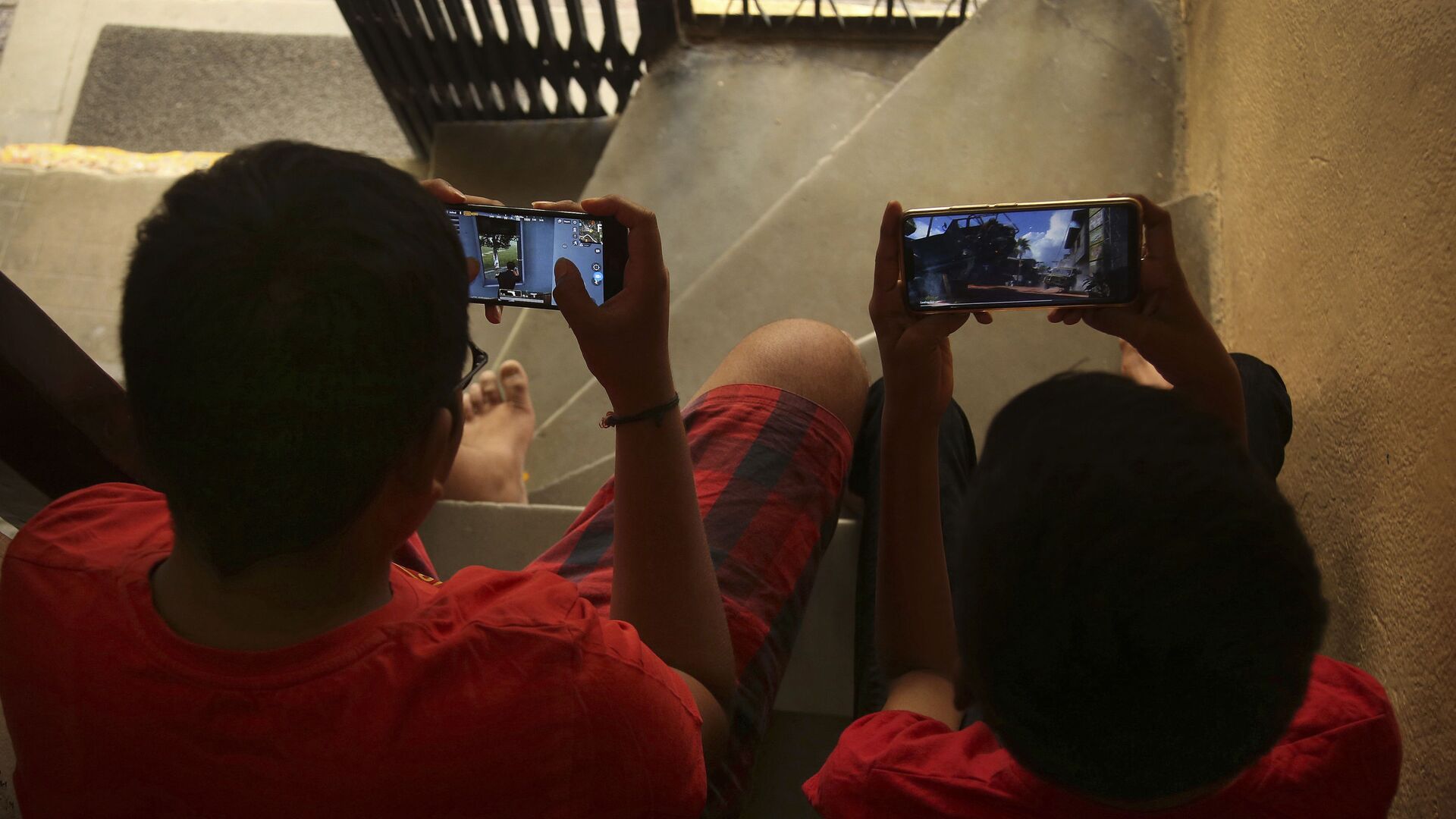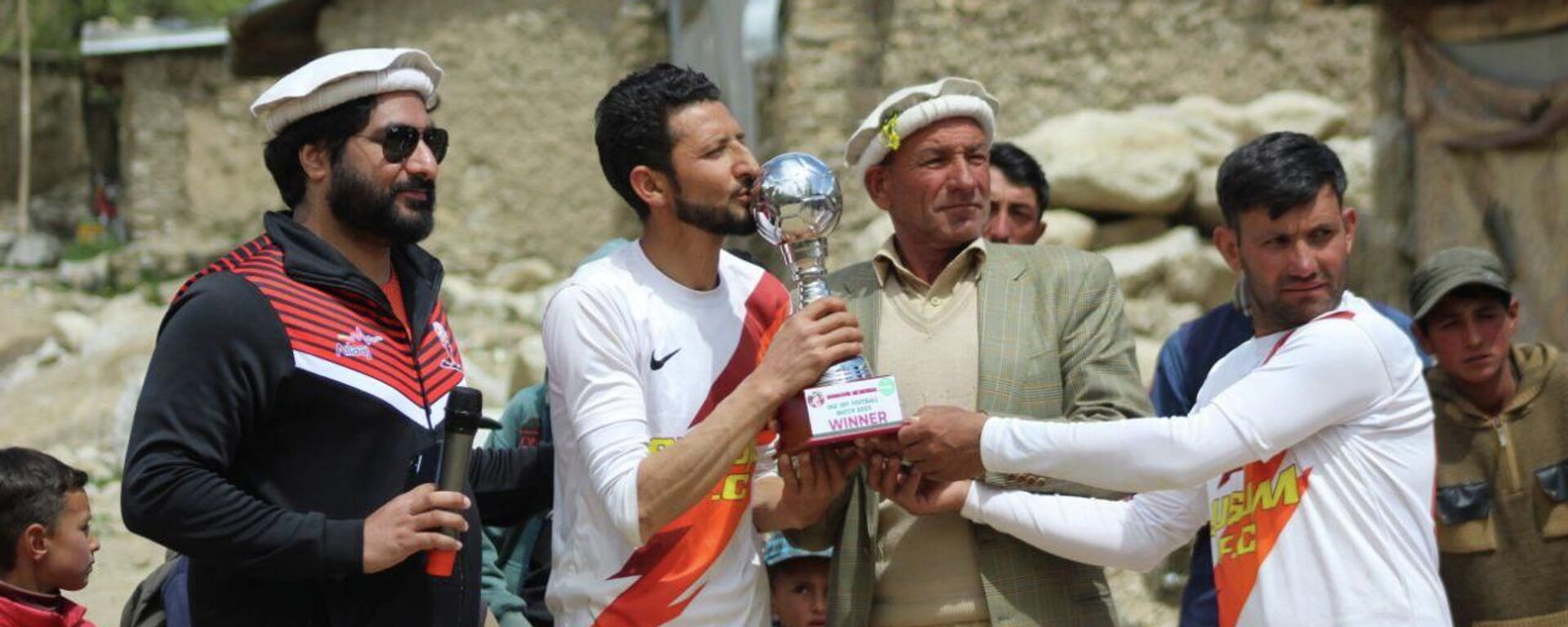https://sputniknews.in/20230729/violent-instinct-how-online-games-are-taking-their-toll-on-childrens-mental-health-3226921.html
Violent Instinct: How Online Games Are Taking Their Toll on Children's Mental Health
Violent Instinct: How Online Games Are Taking Their Toll on Children's Mental Health
Sputnik India
Kraken is among 50 survivors deployed on the island and has to kill others to be the last man standing on the island in the next 10 minutes.
2023-07-29T08:10+0530
2023-07-29T08:10+0530
2023-07-30T03:57+0530
sputnik exclusives
india
government of india
health
health issues
the world health organization (who)
https://cdn1.img.sputniknews.in/img/07e7/07/1c/3266367_0:0:3084:1736_1920x0_80_0_0_35c635c9fcf66eb9c60c25b6cfc3870d.jpg
Kraken is among 50 survivors deployed on the island and has to kill others to be the last man standing on the island in the next 10 minutes. To live on the Island, Kraken can drive around in abandoned vehicles and look for legendary loot and supplies that are airdropped twice or thrice throughout the session. Kraken can also invite nearby players to camp and hunt him down.After successfully completing a stage, he is hailed by the online community, and it gives him gratification: one more goal is completed. However, if he loses the battle, he gets another chance to fight and finish the game. However, in real life, Kraken could not handle the failure.Kraken is a 15-year-old Reyansh Shukla* hailing from Rajasthan state’s Alwar district diagnosed with a mental disorder, whose hands often shiver in sleep, suffering memory loss. In his sleep, Shukla keeps saying: “Fire, Fire”, and his handshake is in motion of playing games.Sputnik spoke with Bhawani Sharma, a trainer at the Disability Welfare Foundation where Shukla is admitted, he said that he used to play online games up to 15 hours a day for the past six months.“He is obsessed with the online game Free Fire. He loses his mental balance after losing the game. We are providing counselling and prepared a format of sports activities so that he can overcome the fear of loss and level online game and remembers his victory.”Violence In Online GamesIn recent times, not just Shukla but many cases have come to light where teenagers were seen getting addicted to online games. Especially violent games like PUBG, Free Fire, etc, and later, when parents tried to stop them, either they turned violent or even tried to commit suicide.One of the most disturbing incidents being of a 17-year-old boy, Sarnaam, who stabbed his father, mother, and sister to death after his parents scolded him for playing PUBG and not focusing on his studies. Police said that he showed no sign of remorse when he was arrested.The World Health Organization (WHO) recognized video-game addiction in 2018, which is characterized by:A Word of Advice for Parents: Don’t Make It Online Games Vs YouSputnik spoke with Mimansa Singh Tanwar, Lead Clinical Psychologist at Fortis Hospital and Head of Fortis School Mental Health Program, who said, “Stopping your child from playing online game is not going to help. In fact, parents should be aware of what seeing or playing online, and balance it with a lot of other physical activity things. ”Tanwar said that children who have low esteem, struggle in academics or social relationships in the physical world, or are not involved in physical games or activities often get addicted to online games, “It’s an easy way out.”“In the online world, there are different communities and a peer group who’re not judging them, in fact appreciating when they clear a game level or perform well. Online games have become a way for children to engage themselves. So, when a child is feeling sad, dull, or bored, they tend to get into online gaming. Now, anything which parents do not monitor, there is a tendency for a child to explore, because, for them, it's a means to just experiment, explore and engage.”"People feel confident, obviously in an unhealthy way. It also enhances their self-esteem. But that too in the unreal world. Because of appreciation in the online world, children cannot filter their boundaries,” Singh said.“Now, if children are exposed to any content which has lots of violence and aggression, it turns emotional outlet for them. They do tend to adopt the violence in their behaviour,” she explained.When Parents Need to Keep Check?Singh said that the online world creates a sense of disconnectedness from the real world among people. If the children are not monitored, they will increase online interaction hours, and their behavior also starts to change.Changes in their behavioral pattern could be:In such a scenario, “parents should not handle the situation negatively, like reprimanding children… The child will start to feel that it’s me against my parents. Completely discouraging online games are not an option but they should also try to understand the game and communicate more with kids. Then, they should try to understand why are they spending more time in online world... what’s actually happening in child’s life.”Second, digital media literacy must be used where children need to be taught that the digital world is not the real world, and this again requires parents having communication. Parents need to work with children where they feel vulnerable – academics, extra curriculum or games, etc. Parents need to tell their children that there are better ways to boost their confidence.The psychologist also said that it's not like parents need to worry only about boys as they tend to play more violent games than girls. “But, then girls are exposed to more shopping and influence with the idea of body… Gender is irrelevant, both can get addicted.”Rising Number of PatientsIt's been less than 10 years when the Indian mental health clinic started counselling problems related to technology. In 2014, Bengaluru city’s National Institute of Mental Health and Neuro-Sciences (NIMHANS) started dealing with mental health problems related to technology use.However, over the years, Indian cities recognized the problems, and now online gaming addiction or online screening is a recognized problem. Although there is no identified data which says about addiction cases coming to them but in a city like Delhi, a health expert said that they get at least 50-60 cases in NIMHANS, Delhi, and about 20% of them are children (However, Sputnik cannot confirm on what kind of psychology service these kids are seeking.)Psychologist Hemalata Charu said that 80% of the kids attending NIMHANS see gaming obsession behavioural problems.Way OutCharu, a mother of two teenagers, said that she had also seen a similar situation during COVID when children saw their screen time increase, but now, the battle has been fought and won.During Covid, my children were relentless, beating each other during online games and even started fighting physically over some mistakes made by others.“We started with pottery and gardening classes during weekends and later when lockdown ended they started attending dance classes, etc. I was sure that we won’t be using any internet during weekends. And, the result was clear. It has been three years of adopting it to habit and we’re still doing it.”“The message was simple. Virtual world is not the real world,” the psychologist added.
https://sputniknews.in/20230722/young-mans-football-passion-empowers-local-community-in-remote-area-of-pakistan--3101569.html
india
Sputnik India
feedback.hindi@sputniknews.com
+74956456601
MIA „Rossiya Segodnya“
2023
Deexa Khanduri
https://cdn1.img.sputniknews.in/img/07e6/0c/13/138923_52:0:533:481_100x100_80_0_0_cadf23d341691fc65ff2b22fd1afe584.jpg
Deexa Khanduri
https://cdn1.img.sputniknews.in/img/07e6/0c/13/138923_52:0:533:481_100x100_80_0_0_cadf23d341691fc65ff2b22fd1afe584.jpg
News
en_IN
Sputnik India
feedback.hindi@sputniknews.com
+74956456601
MIA „Rossiya Segodnya“
Sputnik India
feedback.hindi@sputniknews.com
+74956456601
MIA „Rossiya Segodnya“
Deexa Khanduri
https://cdn1.img.sputniknews.in/img/07e6/0c/13/138923_52:0:533:481_100x100_80_0_0_cadf23d341691fc65ff2b22fd1afe584.jpg
online game, fantasy game, violent online game, pubg, call of duty, dream11, mental disorder, mental health, shiver in sleep, suffering memory loss, disability welfare foundation, free fire, violence in online games, children turned violent, children tried to commit suicide, video-game addiction, sense of disconnectedness from the real world, online interaction hours, change in mood, digital media literacy, national institute of mental health and neuro-sciences, nimhans
online game, fantasy game, violent online game, pubg, call of duty, dream11, mental disorder, mental health, shiver in sleep, suffering memory loss, disability welfare foundation, free fire, violence in online games, children turned violent, children tried to commit suicide, video-game addiction, sense of disconnectedness from the real world, online interaction hours, change in mood, digital media literacy, national institute of mental health and neuro-sciences, nimhans
Violent Instinct: How Online Games Are Taking Their Toll on Children's Mental Health
08:10 29.07.2023 (Updated: 03:57 30.07.2023) Deexa Khanduri
Sputnik correspondent
In recent years, fantasy and online games have become popular. Millions of people, including children, are playing online games like PUBG, Call of Duty, Dream11, among others every day.
Kraken is among 50 survivors deployed on the island and has to kill others to be the last man standing on the island in the next 10 minutes.
To live on the Island,
Kraken can drive around in abandoned vehicles and look for
legendary loot and supplies that are airdropped twice or thrice throughout the session. Kraken can also invite nearby players to camp and hunt him down.
After successfully completing a stage, he is hailed by the online community, and it gives him gratification: one more goal is completed. However, if he loses the battle, he gets another chance to fight and finish the game. However, in real life, Kraken could not handle the failure.
Kraken is a 15-year-old Reyansh Shukla* hailing from Rajasthan state’s Alwar district diagnosed with a mental disorder, whose hands often shiver in sleep, suffering memory loss. In his sleep, Shukla keeps saying: “Fire, Fire”, and his handshake is in motion of playing games.
Shukla was admitted to a rehabilitation centre earlier this month as his addiction to online games has taken a toll on his daily life, mental balance and well-being.
Sputnik spoke with Bhawani Sharma, a trainer at the Disability Welfare Foundation where Shukla is admitted, he said that he used to play online games up to 15 hours a day for the past six months.
“He is obsessed with the online game Free Fire. He loses his mental balance after losing the game. We are providing counselling and prepared a format of sports activities so that he can overcome the fear of loss and level online game and remembers his victory.”
In recent times, not just Shukla but many cases have come to light where teenagers were seen getting addicted to online games. Especially violent games like PUBG, Free Fire, etc, and later, when parents tried to stop them, either they turned violent or even tried to commit suicide.
One of the most disturbing incidents being of a
17-year-old boy, Sarnaam, who stabbed his father, mother, and sister to death after his parents scolded him for playing PUBG and not focusing on his studies.
Police said that he showed no sign of remorse when he was arrested.
Meanwhile, India has also witnessed a few cases of children committing suicide after losing online games or losing their parent's money while playing the games.
The World Health Organization (WHO) recognized video-game addiction in 2018, which is characterized by:
Impaired control over gaming
Increasing priority is given to gaming over other activities because gaming precedes other interests and daily activities.
Continuation or escalation of gaming despite the occurrence of negative consequences.
A Word of Advice for Parents: Don’t Make It Online Games Vs You
Sputnik spoke with Mimansa Singh Tanwar, Lead Clinical Psychologist at Fortis Hospital and Head of Fortis School Mental Health Program, who said, “Stopping your child from playing online game is not going to help. In fact, parents should be aware of what seeing or playing online, and balance it with a lot of other physical activity things. ”
Tanwar said that children who have low esteem, struggle in academics or social relationships in the physical world, or are not involved in physical games or activities often get addicted to online games, “It’s an easy way out.”
“In the online world, there are different communities and a peer group who’re not judging them, in fact appreciating when they clear a game level or perform well. Online games have become a way for children to engage themselves. So, when a child is feeling sad, dull, or bored, they tend to get into online gaming. Now, anything which parents do not monitor, there is a tendency for a child to explore, because, for them, it's a means to just experiment, explore and engage.”
"People feel confident, obviously in an unhealthy way. It also enhances their self-esteem. But that too in the unreal world. Because of appreciation in the online world, children cannot filter their boundaries,” Singh said.
“Now, if children are exposed to any content which has lots of violence and aggression, it turns emotional outlet for them. They do tend to adopt the violence in their behaviour,” she explained.
When Parents Need to Keep Check?
Singh said that the online world creates a sense of disconnectedness from the real world among people. If the children are not monitored, they will increase online interaction hours, and their behavior also starts to change.
Changes in their behavioral pattern could be:
Become moody, easily sad, irritated, angry, aggressive, and restless without phones
Can also start lying to parents to use their phones or spend more time on-screen
The child’s sleep cycle is gets impacted.
Isolated or withdrawn from the physical world and their academic results are also declining, this means there is a call for action.
In such a scenario, “parents should not handle the situation negatively, like reprimanding children… The child will start to feel that it’s me against my parents. Completely discouraging
online games are not an option but they should also try to understand the game and communicate more with kids. Then, they should try to understand why are they spending more time in online world... what’s actually happening in child’s life.”
Second, digital media literacy must be used where children need to be taught that the digital world is not the real world, and this again requires parents having communication.
Parents need to work with children where they feel vulnerable – academics, extra curriculum or games, etc. Parents need to tell their children that there are better ways to boost their confidence.
The psychologist also said that it's not like parents need to worry only about boys as they tend to play more violent games than girls. “But, then girls are exposed to more shopping and influence with the idea of body… Gender is irrelevant, both can get addicted.”
Rising Number of Patients
It's been less than 10 years when the Indian mental health clinic started counselling problems related to technology. In 2014, Bengaluru city’s National Institute of Mental Health and Neuro-Sciences (NIMHANS) started dealing with mental health problems related to technology use.
However, over the years, Indian cities recognized the problems, and now
online gaming addiction or online screening is a recognized problem. Although there is no identified data which says about addiction cases coming to them but in a city like Delhi, a health expert said that they get at least 50-60 cases in NIMHANS, Delhi, and about 20% of them are children (However, Sputnik cannot confirm on what kind of psychology service these kids are seeking.)
Psychologist Hemalata Charu said that 80% of the kids attending NIMHANS see gaming obsession behavioural problems.
Charu, a mother of two teenagers, said that she had also seen a similar situation during COVID when children saw their screen time increase, but now, the battle has been fought and won.
During Covid, my children were relentless, beating each other during online games and even started fighting physically over some mistakes made by others.
Her solution: No video games, no use of the internet during weekends. Time was allotted for friends, family, outings, cooking, and offline games. And, strictly phones.
“We started with pottery and gardening classes during weekends and later when lockdown ended they started attending dance classes, etc. I was sure that we won’t be using any internet during weekends. And, the result was clear. It has been three years of adopting it to habit and we’re still doing it.”
“The message was simple. Virtual world is not the real world,” the psychologist added.



